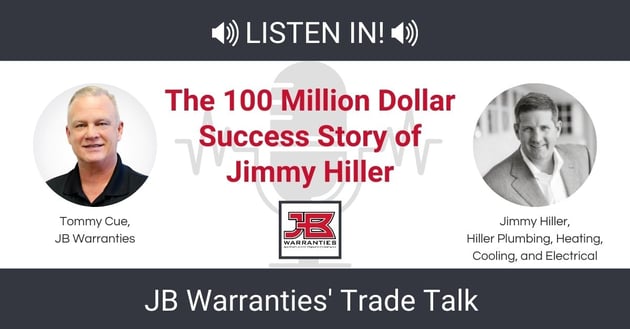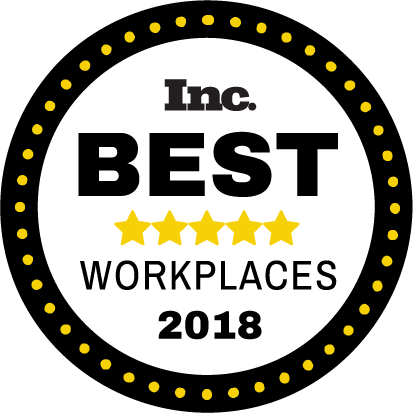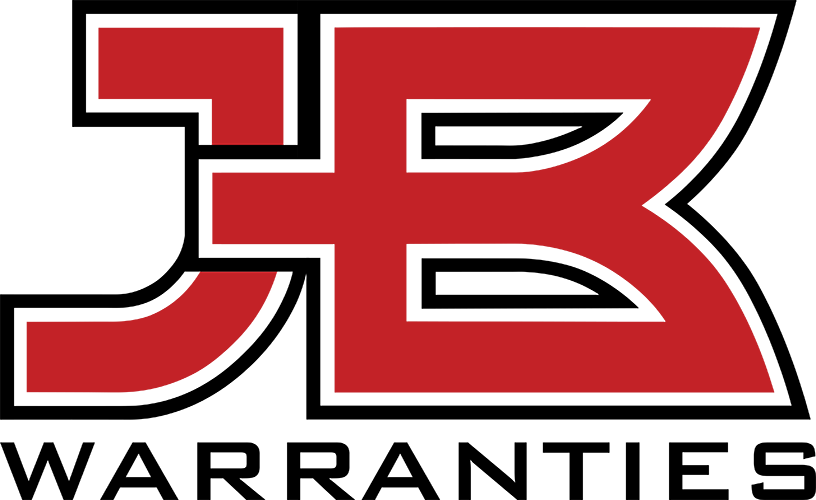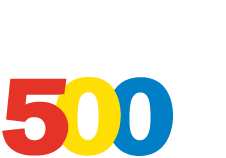
In this episode of Trade Talk, Jimmy Hiller, the founder of Hiller Plumbing, Heating, Cooling & Electrical, shared some real-world advice on how he turned a small Nashville shop into a thriving business spread across several states. Jimmy’s story is straightforward: good things will happen if you focus on customer service and take care of your team. He talked about the bumps in the road he’s faced and how he’s stayed ahead in a changing industry. He also offered some practical tips for other contractors aiming to grow their own businesses.
Host: Tommy Cue, JB Warranties
Guest: Jimmy Hiller, Hiller Plumbing, Heating, Cooling, and Electrical
Contact Jimmy
Phone: (844) 694-4553
Email Jimmy
Here’s a quick recap of our conversation with Jimmy:
Key Takeaways:
Starting and Growing:
Jimmy started out in 1990 with just one location in Nashville and has since expanded across the Southeast.
His key to success? Always put the customer first and stick to your word.
Business Philosophy:
The company lives by the motto "Happy You'll Be or the Service is Free," which shows just how committed they are to making customers happy.
Jimmy is a big believer that if you treat your employees well, they’ll take great care of your customers.
Creating a Good Work Environment:
Jimmy focuses on making sure his team has a positive place to work. He helps them grow their skills and makes sure their hard work is recognized.
The culture at his company is all about respect and accountability.
Overcoming Challenges:
Growing into multiple locations wasn’t easy, but Jimmy shared how staying up-to-date with technology and industry trends helped his company adjust and thrive.
Advice for Contractors:
Jimmy’s advice for those in the trades is to be patient, keep pushing forward, and always keep the customer in mind.
He also stresses the importance of reinvesting in your business and having a clear vision for where you want to go.
Jimmy Hiller’s experience is a great example of how focusing on your customers, treating your team well, and putting in the work can lead to real success in the HVAC and plumbing industry. His story has plenty of lessons for contractors who are looking to grow their own businesses.
Read the Transcript:
Brian Bohannan: Good morning. This is Brian with JB Warranties on the latest edition of the Trade Talk podcast. On this edition, we've got Mr. Jimmy Hiller, of Hiller Plumbing, Heating and Air. Mr. Hiller, thank you for joining us.
Jimmy Hiller: Thank you. I appreciate you letting me join you today.
Brian Bohannan: We appreciate you being here with us. We've been working with you now for several years. We appreciate you being on and sharing a little bit of your time with us, we know you're a busy guy, you've got a lot going on. We want to get into some of the projects you've got, some of the irons you've got in the fire, but I think, if we could, Tom, do you want to start with just a quick introduction?
Tommy Cue: Yeah, I know Mr. Hiller's story very well, him and I have talked over the years, and I'd really just kind of like an overview of the success you've had Mr. Hiller, if you don't mind.
Jimmy Hiller: Okay. If you want me to start at the beginning, when I got out of high school in 1984, I really didn't have any direction in my life, didn't know what I was doing. I'd already had my first child while I was a senior in high school, and a good friend of my fathers was a plumbing inspector. They got together and said, "Hey, Jimmy needs to learn a trade. He needs to find a way to be able to provide for his family." So him being a plumbing inspector, they decided that Jimmy was going to become a plumber. So in December of 1984, and I think if you look at the record books, it's the coldest December in the history of Nashville. I was out there roughing in plumbing in apartments at that time. I did that and worked for a couple of different companies over the years.
Jimmy Hiller: Then, really in 1989, I started thinking about my life direction, where I was going with my life, and started making some steps and some plans to go in business for myself. The company that I was working with, there really wasn't a whole lot of chance for advancement. He was a really good guy, I like him, still in business today, but his company is about the same size as it was then, when I worked for him back in the late eighties.
Jimmy Hiller: I started making plans, was really going through a divorce late in 89, and my expenses were probably as low as they were ever going to be in my life. I had a pickup truck that I bought, the payment was $135 a month. I had rent, I moved in with a friend of mine, my rent was $175 a month. We were living in a little duplex and I said, "Hey, if I'm ever going to do this, now's the time to do it."
Jimmy Hiller: I went into work one Friday morning, I had a job. When I got off that evening, my boss was still there and just sit down and talking to him, and he just asked me a simple question. He said, "Hey, Jimmy, you don't seem to be as happy here as you once were." And I said, "Well, I've been thinking about it for a little bit, and I think I want to try it myself."
Jimmy Hiller: Now, I would recommend that everybody listening on this probably not do what I did because at that time, like I said, I had a pickup truck and I had $500 to my name, and decided to go into business. Didn't have any work, but I started the very next week, knocking on doors. I was a residential, new construction plumber, and I drove around all day knocking on doors of subdivision job trailers, "Hey, can I give you a price?" Then I'd drive to the next one, I knock on the trailer doors, "Hey, who can I give prices to?" Eventually I'd pick up a job or two. That's where it all began.
Tommy Cue: That's really just plumbing, you hadn't got into the heating and air segment yet, correct?
Jimmy Hiller: No, we didn't. We started obviously in 1990 with just plumbing and really didn't get into the HVAC part until 2003.
Tommy Cue: And your plumbing business kind of ballooned, because you moved into a couple of different locations over that first four years, I guess?
Jimmy Hiller: Well really not then, so we've got to step back and look at what I was doing. From 1990 to 1998, we were strictly a new construction plumbing company. That's all we did. I was doing residential new construction, started dipping into a little bit of commercial work, and this was my first introduction into residential plumbing service. So in 1998, I made the decision to go ahead and get into the residential service department. Then in 1999, that's when I met Jim Abrams and Terry Nicholson.
Tommy Cue: So back to the 1998, 99 movement, if you will, not many contractors respected their industry, and you were kind of a leader in the no shoe, you wore the shoe covers entering houses and things like that. What made you think to create yourself and set yourself different than the competitors in the market?
Jimmy Hiller: That's really, obviously, my introduction to Jim and Terry in trying to figure out how to be different. When you go out there, if you're wearing blue jeans and a t-shirt, especially at that time, that was probably the standard inside the industry. They introduced me to a new, different world. How do you make yourself stand out? How are you different? How do you do things differently to make sure that you can get a little bit higher pay than what your typical plumber was?
Jimmy Hiller: Obviously, I've been doing it all my life now. It's been a really good industry to me. If you do it properly, it can be a really good industry for anybody, but you have to follow the right steps. You just can't be like I did when I first got started, have a pickup truck, throw your tools in the bag, put you some parts in there, and wear blue jeans and t-shirts and things like that.
Jimmy Hiller: I'll never forget, one of the contractors, and I've been blessed to have a lot of people over the years just giving me little tips. I showed up at a job one time, and this gentlemen had taken in an interest in me. He was a few years older. When I pulled up and I met him to look at this house, he pulled me aside after the job and said, "Hey, Jimmy, if you ever want to be taken serious inside this industry, you're going to have to wake up and shave every day." At that time, blue jeans, t-shirts, and if you felt like shaving, you shaved, if you didn't feel like shaving, you didn't. That was one of the things that said, "Hey, you have to be professional. You have to look professional, you have to play the part of a professional industry, which is what we are."
Tommy Cue: Then you created the Happy Hiller, and the smiling face logo. Was that your doing Jimmy? Or did you counsel with other folks?
Jimmy Hiller: Once again, I've been blessed over the years to be around a lot of really smart people. I think that that's the key to a lot of people's success, at least it has been with mine. You hear little things. Jim and Terry obviously taught me about branding and how to brand my business, how to be different. Most of the plumbing trucks out there in the industry, they've got a pipe wrench or a sewer machine or something on the side of the truck. I wanted to be different. I wanted to stand out. I wanted something that people would recognize my brand rather than my name. I was never foolish enough to believe that they would remember my name, but a smiley face, which is relatively a simple deal, they said, "Hey, put a smiley face on your truck."
Jimmy Hiller: When it started off, it was a 12 inch smiley face in the corner of the truck. As we would add trucks and buy new trucks, and re-label the trucks, and wrap the trucks, that's when the smiley face became bigger and bigger. Then obviously then we came up with a slogan we have today, which most people in our industry are afraid to offer the type of warranties that we do, "Happy you'll be or the services is free." When you go out and stand out in the marketplace and say, "Hey, we're here to serve you. We're here to take care of you, and for whatever reason, if you're not happy, we're going to stand behind it. We're going to do whatever we need to do to make it right by you, or we'll give you money back." Most people are not willing to do that.
Tommy Cue: What a slogan, "Happy you'll be, or the service is free." That's fantastic. Now we've progressed all the way up to about 2004, I think 2003, that's when you introduced HVAC?
Jimmy Hiller: In 2003, I was partnering with another gentleman here in town. Basically he came and knocked on my door and said, "Hey, Jimmy, you're building a pretty good plumbing business, I'm trying to grow my HVAC business. What if we helped each other? What if we passed out each other cards when we went to service calls? And maybe in later time, we can have a partnership." I said, "Hey, that sounds like a pretty good plan to me."
Jimmy Hiller: So we started doing that. Now you got to remember in 2003 on Saturday mornings, I was the dispatcher. I would take the calls and I would dispatch the calls to the technician. I got a call from a customer that said, "Hey, I've got water coming through my ceiling." Me being a plumber, obviously I sent a plumber out there that to see what was going on. He got out there and he said, "Hey, Jimmy, it's the condensate drain coming off the air conditioner." It was in the summertime.
Jimmy Hiller: So I picked up my cell phone and I called this other business owner on his cell phone. This was about one o'clock on a Saturday afternoon. By the time he called me back it was 10 o'clock on Monday morning. So when I looked at what he was doing, and how he was operating his business, I knew that that wasn't the type of individual that I can partner with. He didn't have the same work ethic and customer service mind that I had. I made the decision that I could not partner with him.
Jimmy Hiller: A few days later, a gentleman knocked on my door and said, "Hey, Jimmy, have you ever thought about getting into the HVAC business?" I said, "Well, as a matter of fact, I have." That's when, 2003, we started the HVAC side of our business.
Tommy Cue: Did you go get your own license, Mr. Hiller? Or did you hire somebody with a license? How did it work in Tennessee back then?
Jimmy Hiller: In Tennessee, I went and got my license. I've always felt like it's better for me to have the license, so everywhere that we have locations, I've gone and gotten the license myself to do that. Once again, when I had the thought of going into a different trade, started the steps of making sure that I was protected with those licenses. When I partnered with Jim and Terry in 99, really looking for a mentor to help me grow my business, somebody that's been there, done it before me, and help guide me. When I just made the decision to get into HVAC business, I reached out to them again, and that's when I started getting the assistance in the HVAC side of the business.
Tommy Cue: Then your HVAC took off, very rapidly, it looks like, and you moved into a third Nashville location. I think this is now up to 05, much bigger facility?
Jimmy Hiller: Obviously we were already pretty substantial in the plumbing side of our business, and in growing the HVAC side, one of the things which was key, our very first year in the HVAC business, we did a million dollars in revenue. So going from zero in sales to a million dollars the very first year in HVAC was kind of unheard of, especially at that time. Then in 2005, you got to remember, I was still predominantly a new construction company, a residential plumbing, new construction company. So in 2005, I had really just beaten my head up against the wall enough times with these general contractors that I made the decision I wasn't going to do that anymore.
Jimmy Hiller: Now you're right, in 2005, I purchased a new building, but it was under a lease agreement that I had to honor. So we weren't planning on moving into that until February of 2006. When we started looking at that, and then October of 2005, I had three contractors, that I'll say I blew up on them, but they were stressing me pretty big, and they weren't paying me. That's usually what happens, they beat you up to get the job, and then they slow pay you throughout the job, and that's just not a very good business model to follow. So in October 2005, I made the decision that I was going to get out of the new construction business. Well, getting out of the new construction businessmen meant, at that time, I was giving up half of my revenue. I was going from an $8 million company, and I was giving up $4 million the very next year, and really I was scared to death.
Jimmy Hiller: Once again, I reached out to Mr. Abrams, and I said, "Hey, this is what I'm planning on doing, and I'm kind of scared to death." Just so happened, Mr. Abrams was putting on a general managers class in Tampa, Florida that I attended in December of 2005. That's really when my life and my business changed because I spent two weeks down there, and that's when I came up with what I'm going to call my first real business plan. A step-by-step process of exactly what I need to do in 2006 to succeed in that transition that I was going from. Very scary time for me, like I said, giving up $4 million in revenue, had just purchased a new building, which at the time I thought was way too big for me and way too expensive for what we were doing.
Jimmy Hiller: Needless to say, I was scared to death. We went into 2006 and we replaced that $4 million in revenue that same year. That's really when the acquisition started. When we started looking at it, bidding jobs, managing construction jobs, took a tremendous amount of my time. When I made the decision to get out of that and focus solely on the residential service and replacement business, that's when it really skyrocketed. I replaced that $4 million in 2006, I made my very first acquisition in 2006, and then we've just kind of taken off since then.
Tommy Cue: Wow. So today, help me understand, the Hiller companies, if you will, you have how many locations across the state?
Jimmy Hiller: Today we have 12 locations, and then we have really kind of 13, we've got a satellite location that we don't really operate out of, but it's more of a marketing. It's a little satellite, away from a satellite. We've got one in Southern Kentucky, one in Northern Alabama, and 10 in Tennessee, throughout middle Tennessee.
Tommy Cue: And you keep growing, and you've got your hands in several other different segments, if you will. Tell me a little bit about the Helping Hands program if you don't mind.
Jimmy Hiller: The Helping Hands is obviously just a way for us to give back to the communities that service. I've been so blessed that over the years the communities have supported us, and helped our businesses grow. Now, we do a good job. We take care of them and they take care of us, so when we find somebody in need, as a matter of fact, I just approved one yesterday. It's really kind of a sad story that in today's world, that there's people out there that don't have the simple necessities of everyday life.
Jimmy Hiller: Yesterday we replaced a water heater for an 85 year old woman that was on oxygen, that didn't have the money to replace her water heater. We showed up at her house and she's got two or three grandkids running around, her daughter's living there, she's living there and she's on oxygen. I don't know how we could have left her without hot water. We made the decision, the technician came and saw me, and we made the decision to replace that water heater, at no cost to her. I got an email later on, saying how thankful that she was that we did that, and that I was her angel for the day.
Jimmy Hiller: When you get those emails and thank you's back, I've gotten emails from people where we've replaced their HVAC unit at no cost to them because they simply didn't have the funds. One of them was around Christmas time that the lady sent me an email saying, "Hey, I've never done this before, I've worked hard all my life, and I've never asked anybody for anything, but I simply do not have the money to replace my HVAC unit, and for the first time in my life, I'm afraid I might freeze to death," as she was looking at the weather forecast coming up.
Jimmy Hiller: I get cards and letters, and it's built a culture inside of our business, I get cards and letters from people every Christmas thanking me for the things that we'd done. And most of them, I don't even know that we do anymore. So, when we find somebody in need, we do our best to help them. That's really the culture that we built here.
Tommy Cue: Man, that is awesome to give back to the community. During this COVID crisis, we're fortunate enough to still have a business that's gaining and growing, and we've been able to make several donations around the country to some food banks, and choose some loyal customers and strategic partners where we do that. You've also got yourself involved with Top Tech partners, and that's a trade school, I guess, for returning military personnel?
Jimmy Hiller: Yeah, you're talking about Transition to Trades through our Total Tech School.
Tommy Cue: Yes, sir.
Jimmy Hiller: When we look at Transition to Trade, as we've grown our businesses, and as we've looked at the struggles that we have to go through each and every day in the industry, looking for good, honest, hardworking people, I think everybody on this call today would say is somewhat of a struggle. We started looking at, where are there pockets of people that can help us be part of our team and help us grow our business even more. We thought, let's look at the high schools, let's see what the high schools have to offer, and I don't know about most of the people out there, but when I got out of high school, I didn't have a whole lot of direction in my life. It took my father and one of his friends to kind of push me into the direction that I needed to go.
Jimmy Hiller: Then we started looking, where else can we go? We said, where is there another group of people that are really good, honest, hardworking individuals that know how to show up on time, know how to follow processes and procedures, know how to put on a uniform, and wear the uniform properly. We said, let's reach out to the military. We've really just started with the Transition to Trade program showing up military job fairs. We showed up at every one of them, trying our best to hire some of these good, honest, hardworking men and women, and then obviously, we had a break. It was kind of a blessing in disguise, but one of my managers was at the job fair, and Brian gave one of these soldiers a business card.
Jimmy Hiller: Now, he didn't know what his level was, didn't know anything about him. But then about three months later, Brian gets a call from this, I don't know what his position was, but one of these soldiers and he said, "Hey, I need y'all to help me. I've got this lady whose husband is deployed, and she was out of town for a little bit. Her heater went out and all of her pipes froze and busted in her house." So we dispatched a technician out there, the woman was in tears, obviously, because her house was not in very good shape. Brian called me and said, "Hey, you this woman is a military family, husband is deployed. I'd like to see if we could do this through the Helping Hands." And of course here, if you ask to help somebody, we're going to help somebody. That's what we did.
Jimmy Hiller: We fixed her plumbing. We fixed her heater, got her up and going again. Then this individual who ran the transition program through the military, three months later, shows up at our office after we were trying to build this Transition to Trade program. He stood up, he said, "First of all, I want to tell you why I'm here." I didn't know this story until he showed up, and he said, "I'm here to pay you back for the good that you did for us."
Jimmy Hiller: That's how the transition program, but we did a helping hands program for somebody, not looking for something in return, but sometimes when you do good things for other people, you get paid back. In this case, we've been paid a hundred times over. We've had just a tremendous amount of people come through our program, and I'll have to look at my notes to see. We've had 500 soldiers come through our program. They've been from 41 different States and we want them all to stay here and work for us, but obviously, sometimes they want to go back to wherever home is. We've got 145 of these soldiers working in our organization today, helping us in all three trades. We do plumbing, heating, cooling, and electrical.
Tommy Cue: How do you place the other 400 and something, Jimmy? Do you have relationship with contractors across the country? How does that process work?
Jimmy Hiller: That's really where Praxis S-10 comes into play. We have contractor partners all across the country and we do everything we can, as they find out, "Hey, I want to go to Denver, Colorado because that's where home." Then we reach out to a Praxis partner in Denver, Colorado, and say, "Hey, we've got a soldier we'd like to link up with you. We'd like for you to give them an interview and see if he couldn't become part of your team." I can't remember how many we've done now, but we've done dozens and dozens across the country. Always here, these are great individuals, they're great for my business, they're great for the trades, so we've been blessed that that's really been a big part of our business.
Tommy Cue: The Praxis S-10 group, if I remember correctly, you and Terry and your group of partners, if you will, that launched in 2016, is that correct? I think that's when we got that started.
Jimmy Hiller: That is correct. In 2016, I co-founded Praxis-S10 with Jim Abrams and Terry Nicholson. It's a strategic mentoring organization, and it's the only strategic mentoring organization inside the industry. When you look at some of these other so-called industry experts, some of them have never even been inside of our trades, and never operated a business and what we do every single day. Some of them have been in the industry, sold a business and don't operate in the industry anymore. The reason we say we're a strategic organization is because we assist and we help people figure out what they need to do with their business. The first step that we knew when we meet with some of these individuals is to say, "Okay, where is your business at today? Where are you at today? Where do you want to take your business?" Then we come up with a step-by-step plan to take them exactly where they want to go.
Tommy Cue: We had the privilege of being invited down to, I think it was Sarasota, last fall, Jimmy? You and Terry were up on stage, and to tout you and how you've recommended JB Warranties across the country. You're up there, and I think your key focus of that opening speech, if you will, was "Don't run a no charge service call." Buy a warranty, whether it's a one year plan, a two-year plan, or Hiller does a very nice job of upselling to five or 10. Has that worked for you over the last three or four years?
Jimmy Hiller: I think when you start looking at what contractors have done inside the industry, and don't get me wrong, I love all the manufacturers that we partner with. They're good partners with us, without a doubt, but the labor portion of the warranty is on the contractors back. When you look at it, depending on what it was many years ago, the standard in the industry was one year. Then people started giving, when they start coming up with five-year parts, people started tagging on five years labor to it, and then they came out with 10 year parts, and then people started saying, we're going to give you a 10 year parts and labor on it. Well for a contractor to carry that burden for 10 years, 10 years is just a tremendous burden.
Jimmy Hiller: So, one of the things when I say is, I want to get paid on every service call. Well, that's where the JB Warranties come in. We look inside of our organization and we've done all these mistakes, and that's why I think it's important when you look at what you're doing, that you find a mentor that's going to help guide you and take you places that they've already been. That's why the strategic mentoring part of it is so important because I've been doing this for 30 years. I've made about all the mistakes that any individual can make inside these industries. If I can use my experience and prevent somebody else from making the same mistakes that I did, that's what I want to do. That's why my partnership with Jim and Terry, they had already been there, they'd already done that, and their job is to help, and our job is to help other individuals not make those same mistakes.
Jimmy Hiller: We fell into the trap, we started offering the 10 year parts and labor warranty. We found that over the period of time, that it was really eating our lunch. When you're making a 10 year commitment to an individual to cover any warranty problems that they have with that, it's a tremendous burden. You don't know what's going to happen and when it's going to happen. So we made the decision, obviously, we want to get paid on every job that we do. Every time that we run a service call, we expect to be paid. That's why we back all of our installations with the JB Warranty. Every one of our installations today, we back it now, we pay for the two year labor warranty. If the customer wants a five year warranty, we pass that cost on to them. If they want to be covered for 10 years, we pass that cost on to them. We've come up with a plan, we wanted to protect ourselves, so that we know that every service call that we run, we expect to be paid on it.
Tommy Cue: I appreciate your time this morning. I know I've kept you a little longer than we wanted, but a couple of questions if you don't mind sharing, because I'm sure people around the country have heard of Hiller, but currently today, how many employees, ballpark annual sales revenue? Share a little bit about some of your success because it's something you got to be very proud of.
Jimmy Hiller: We've got somewhere around 600 employees, like I said, 13 locations. This year we'll finish up over a hundred million dollars in sales. It really hasn't been a bad run from me, starting out with $500 to my name, a pickup truck, to 600 trucks, fully stocked trucks, all lettered in marketing the exact same way, and building a business that does over a hundred million dollars in revenue.
Tommy Cue: Are you currently outside of the State of Tennessee? It seemed like you might have some geography touching Tennessee, I can't remember.
Jimmy Hiller: We have one in Southern Kentucky, and one in Northern Alabama. Obviously, we're out constantly looking to continue to grow our business through acquisition.
Tommy Cue: Well, I appreciate the time. One other thing, I almost forgot, congratulations, there's a Jimmy Hiller Jr. that was just recognized as a 40 under 40, is that correct?
Jimmy Hiller: That's correct. The Nashville Business Journal here put Jimmy as one of the young people to watch. He's doing a great job. He the Operations Manager here at Hiller. He gets to do a lot of the traveling that I used to have to do all the time.
Tommy Cue: You've been a great partner. You've had great success. We really appreciate the opportunity to visit with you. You've introduced us to hundreds of contractors through Praxis. So Jim and Terry, thank you guys as well. It's been a great working relationship and I look forward to the future.
Jimmy Hiller: Okay. Sounds great. We appreciate your time today.
Tommy Cue: All right, sir. Thank you.
Jimmy Hiller: Thanks.

Tommy Cue
Vice President of Strategic Partnerships at JB Warranties






